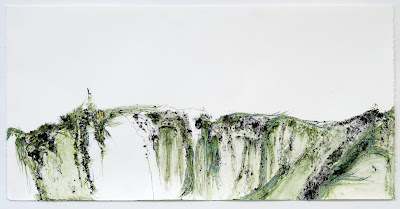Tuesday, March 19, 2013
A Contest?! Yeah, A Contest
The Center for Basque Studies is putting on a writing contest. I've never done this before (and I can't lie and say it was my idea, but I'm definitely putting in the effort organizing it) and I'm scared and excited. Excited because I really want to see if anyone will submit, and what they will submit. I've always loved getting manuscripts, every one a sort of potential—let's face it usually disappointed, but still hopeful—promise. Scared because maybe people will submit and then we'll have to read submissions! But, on the off chance you read this, don't be put off, send us something, we want to hear from everyone out there who might be inspired to write or have a Basque story. Let the Games begin!
Wednesday, March 6, 2013
Memory Landscaping, or Landscaping Memory

It was an impressive sight, something I wanted to clip out with scissors and pin to the wall of my memory." —Haruki Murakami, Sputnik Sweetheart
What I remember: the bullring was mostly empty but for old men and derelicts. But what I see when I look at my only surviving photo: at least half women, mostly middle-aged, some young, and one woman standing waving a white handkerchief. What gives?
 |
| The blurring and fictionalization of memory. |
 |
| Patricia Flores, Memory Landscape* |
My current writing project depends very heavily on my memory, and my diaries, and some photos (there was a time, unfortunately, when I didn't obsessively document my life in photos), and so I have been thinking a lot about how memory works. In the case of what I'm working on, these are memories from pretty dim recesses of my memory: my days in the Peace Corps in the Dominican Republic, my college days, trips to Chile and Mexico way back in the twentieth century. Why do I remember some things and not others, and—even more importantly—why do I feel that I can trust some memories and others I feel that I have fictionalized, even unintentionally, in my process of remembering?
Even the term "memory landscaping" forms a part of a memory: half discussion half joke years ago to describe one of those fairy tale businesses. The idea was to create memories for people. But beyond that the term stuck with me and, in the process of transformation I have taken it to describe this process not only of disintegration, but also of reintegration: the memory transforms in the way that a beloved landscape changes through time and perception. This is a natural and unavoidable process that we all experience, just as all landscapes eventually change into something else: mountain into a beach, into a seafloor, into a mountain again. With every stage in between:
The past lives on in art and memory, but it is not static: it shifts and changes as the present throws its shadow backwards. The landscape also changes, but far more slowly; it is a living link between what we were and what we have become. This is one of the reasons why we feel such a profound and apparently disproportionate anguish when a loved landscape is altered out of recognition; we lose not only a place, but ourselves, a continuity between the shifting phases of our life. —Margaret Drabble
Before it can ever be the repose for the senses, landscape is the work of the mind. Its scenery is built up as much from strata of memory as from layers of rock. —Simon Schama
It seems to me that the opposite is also true though, the mind is a work of the landscape; layers of memory are built up from the strata of rock. For as long as I can remember, the landscapes of my life had worked a profound sort of magic on me, and in my writing I strive to make the landscape a sort of silent character who is always present: landscaping memory is perhaps just as applicable as memory landscaping.
So I return to the bull ring in Madrid, now empty or filled with ghostlike shadows. It remains, fixed, at the same time that it disintegrates and reintegrates, fills up with smiling women waving handkerchiefs at their favorite matadors.
*I don't have permission to use this artwork, and if anyone would like me to remove it, feel free to contact me directly.
References
Ken Taylor, "Landscape and Memory," Unesco Third International Memory of the World Conference, February 19–22, 2008. Availabale here.
Subscribe to:
Comments (Atom)


